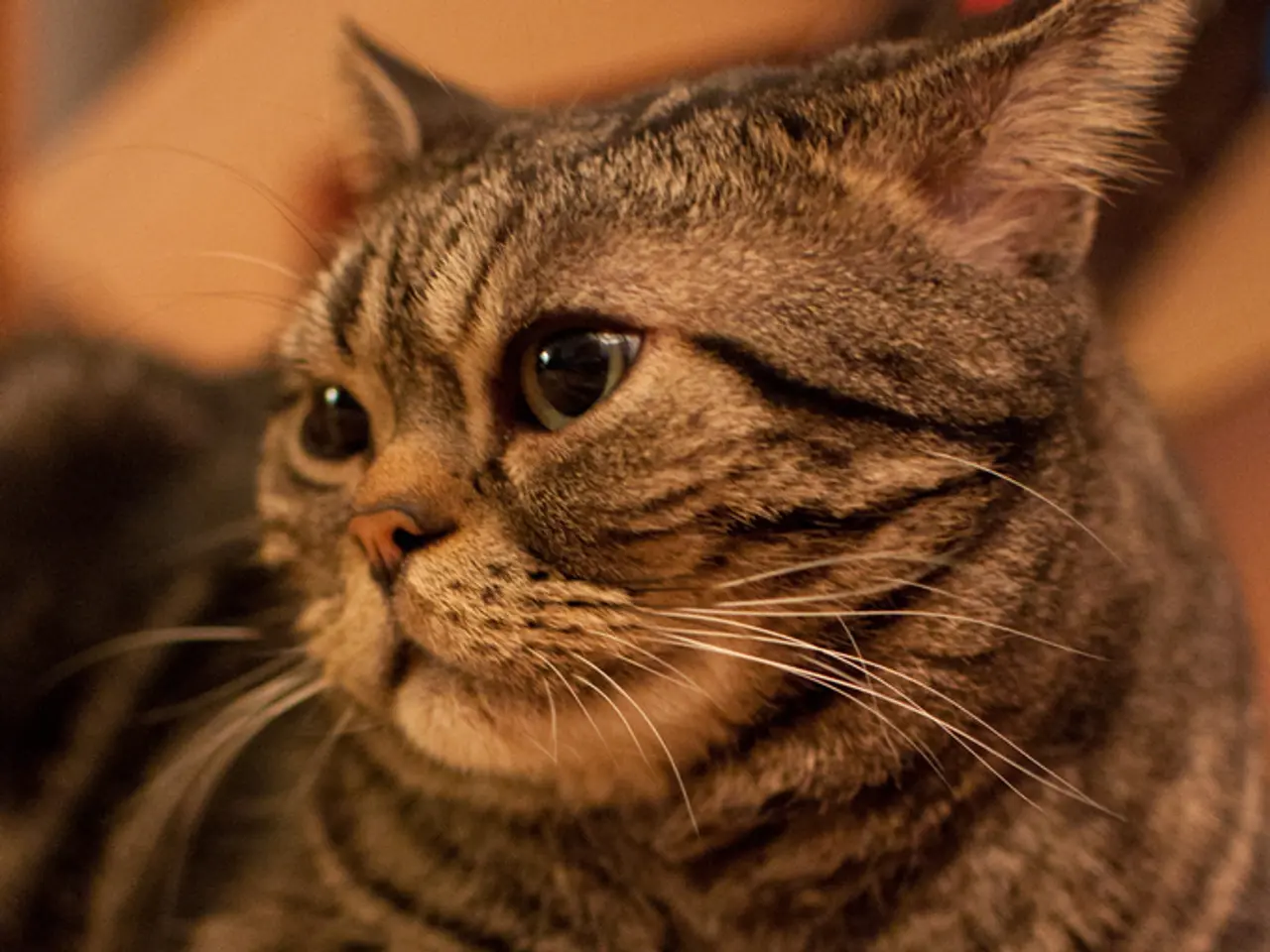Tips for Nurturing Mature Feline Companions
In the twilight of their lives, senior cats require special care to ensure they live comfortably, healthily, and happily. Here are some practical tips for taking care of senior cats:
Environment & Routine
Senior cats are sensitive to changes and prefer a familiar, quiet, and stable environment. To reduce stress, especially if they have vision or hearing loss, keep their surroundings as unchanged as possible. Provide a cozy spot near a window for them to watch outside calmly.
Comfort
Use soft, cushioned beds with orthopedic support to alleviate arthritis and joint pain. Heated pads wrapped to avoid burns can soothe aching joints in cold weather.
Mobility Support
Add ramps or pet stairs for favorite perches and furniture to avoid stressful jumping. Use low-sided litter boxes and elevated food and water dishes to reduce strain.
Exercise & Mental Stimulation
Encourage gentle play and activity adjusted to their abilities to maintain flexibility, healthy weight, and cognitive function.
Nutrition
Provide a high-quality senior cat diet rich in protein, taurine, omega-3 fatty acids, and joint-supporting supplements like glucosamine to support organ, joint, and cognitive health. Avoid raw, boutique, or grain-free diets and human food that may be toxic.
Health Monitoring
Schedule biannual vet visits with routine bloodwork (including thyroid testing for cats over seven years) and dental checks. Watch for sudden changes in behaviour or physical condition and maintain ideal weight to prolong lifespan.
Safety
Minimize household hazards, add non-slip rugs on slick floors, and provide easy access to all essentials in a confined area to reduce physical stress and support aging bodies.
These combined approaches help senior cats age gracefully, improving both their quality and length of life. Introducing changes into a senior cat's life should be done slowly and as low-stress as possible. Provide a plush bed or an orthopedic cat bed for comfort and support. Feeding small, frequent meals can benefit senior cats in several ways, including improved digestion, nutrient absorption, and water intake.
Watch for signs of aging-related discomfort such as difficulty standing or sitting, slowed movements, and reduced fluidity of movements. Changes in a senior cat's behaviour can be a sign of an underlying health issue, so it's important to monitor for sudden behavioural changes. Setting up comfortable hiding spots allows senior cats to retreat to safe spaces when they feel overwhelmed. Monitor your senior cat's weight to ensure they stay within a healthy range.
Make areas accessible by adding steps, ramps, or pet-friendly staircases. Keeping senior cats warm is important, especially for those who have difficulty staying warm enough. Consider joint supplements to support mobility and general health. Maintaining a routine can provide senior cats with a sense of predictability and stability. Keeping a senior cat's claws trimmed is important to prevent hooks from forming.
Continue to provide enrichment for your senior cat through low-energy toys, cat tunnels, cat-safe plants, and visual enrichment. Use a senior-formulated diet for cats over 10 years old to maintain their body mass. Practice dental care to prevent dental disease and its life-threatening conditions. Gentle, daily exercise can help maintain muscle mass, improve joint flexibility, and increase a senior cat's quality of life.
Providing companionship can help prevent loneliness in senior cats. Become familiar with common illnesses that affect senior cats. Minimising stress in their environment can help improve the quality of life for senior cats. Adding rugs, mats, and carpeting can help senior cats with mobility issues and prevent falls.
In conclusion, by providing a safe, quiet, and stable environment, ensuring comfort with soft, warm, and orthopedic bedding, maintaining consistent routines, encouraging gentle play and exercise, and making necessities like food, water, litter boxes, and resting places easily accessible and low to the ground, we can help our senior cats live a long, healthy, and happy life.
[1] Senior Cat Care: A Guide for Pet Owners [2] Caring for Senior Cats [3] Senior Cat Care: Tips for Keeping Your Older Cat Healthy [4] Senior Cat Health and Care [5] Caring for Your Senior Cat
- Senior cats, especially those with vision or hearing loss, appreciate a familiar and stable environment to help reduce stress.
- Providing orthopedic beds with cushioned support can alleviate arthritis and joint pain for senior cats.
- In cold weather, heated pads wrapped carefully can soothe aching joints of senior pets.
- Ramps or pet stairs can support mobility for senior cats when reaching favorite perches or higher furniture.
- Strategically placing low-sided litter boxes and elevated food and water dishes can help reduce strain for senior cats with mobility issues.
- A high-quality senior cat diet, rich in protein, taurine, omega-3 fatty acids, and joint-supporting supplements, contributes to organ, joint, and cognitive health.
- Regular biannual vet visits, dental checks, and thyroid testing for cats over seven years, along with weight maintenance, promote longevity and overall health for senior cats.




